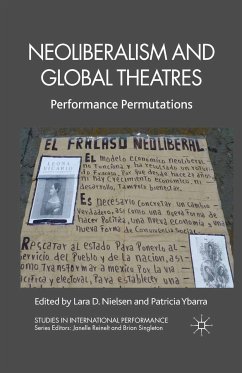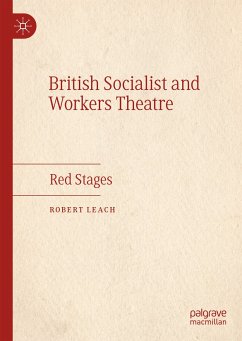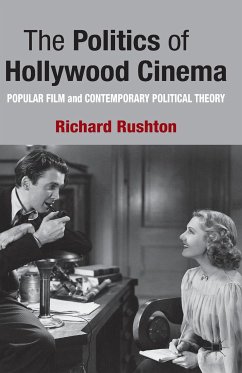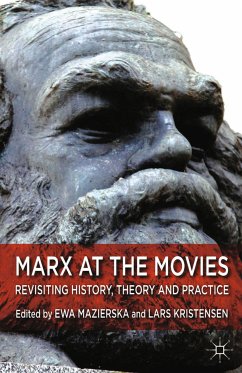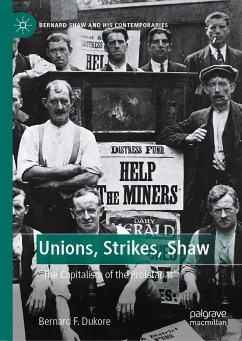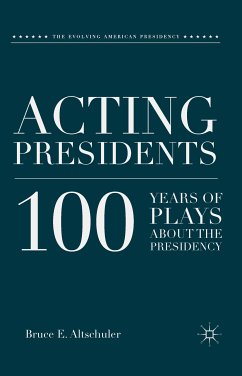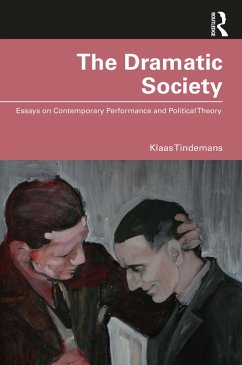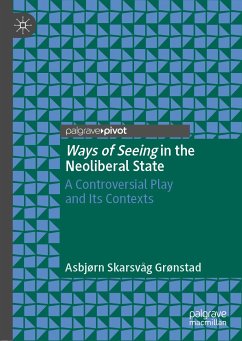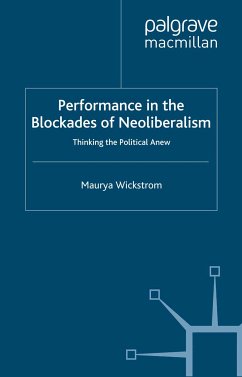
Performance in the Blockades of Neoliberalism (eBook, PDF)
Thinking the Political Anew
Versandkostenfrei!
Sofort per Download lieferbar
40,95 €
inkl. MwSt.
Weitere Ausgaben:

PAYBACK Punkte
20 °P sammeln!
This book ranges from refugee camps in Palestine to halting sites of the Irish Travellers and elsewhere in search of a new politics practiced through performance. Written through the intersection of performance and philosophy, the book refutes neoliberalism's depoliticizing and strategic uses of humanitarianism, human rights, and development.
Dieser Download kann aus rechtlichen Gründen nur mit Rechnungsadresse in A, B, BG, CY, CZ, D, DK, EW, E, FIN, F, GR, HR, H, IRL, I, LT, L, LR, M, NL, PL, P, R, S, SLO, SK ausgeliefert werden.



